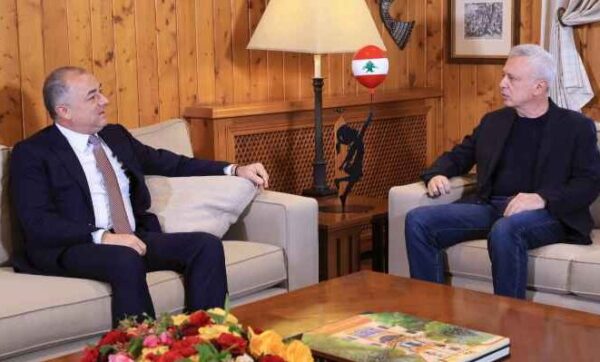Lebanon’s latest presidential vacancy has now rumbled on for six months, with the Baabda Palace sitting empty since ex-army chief Michel Aoun left the official residence for his home in Rabieh.
So acrimonious is the divide in the 128-seat parliament that speaker Nabih Berri has stopped even scheduling sessions to elect a new president since the 11th attempt failed in January. Thus far, no party or coalition has come anywhere near to breaching the threshold required in the legislature, where no group holds a majority.
So the question is, when will the once-regular electoral sessions resume?
Mr Berri, the long-serving speaker who is also leader of the Amal Movement, insists MPs are not taking the election seriously and that he is waiting for serious candidates to declare their candidacy before reopening parliament’s doors.
Two months ago the Amal Movement and its Shiite ally Hezbollah, the highly influential Lebanese armed group and political party, officially declared their support for Suleiman Frangieh, a close ally of Syrian President Bashar Al Assad, and scion of a prominent political family.
An aide to Mr Berri suggested to The National at the time that a presidential session could be held once Mr Frangieh formally declared his candidacy.
Yet, two months on, MPs have not been called back to parliament even though Mr Frangieh has clearly signalled his interest and extolled his strengths.
Mr Berri’s failure to summon the MPs has been strongly criticised by some.
“With all my respect to Mr Berri, but this is not his job. He is not a jury waiting to see if this person qualifies for president or not. His job is the speaker,” said a source within the Lebanese Forces, parliament’s largest party, which is deeply opposed to Hezbollah.
“It’s not his job to see if this person is serious or not.”
The source accused Mr Berri of delaying the reconvening parliament to use the time to boost Mr Frangieh’s chances.
Mr Berri recently said he has no Plan B, only a Plan A, with the candidacy of Mr Frangieh.
In Lebanon’s confessional political system, the office of president is reserved for a Maronite Christian, parliamentary speaker for a Shiite Muslim and prime minister for a Sunni Muslim.
In the first round of voting, a two-thirds majority — or 86 seats ― is required for a president to be anointed. An absolute majority is needed in subsequent ballots in the same session, according to Mr Berri’s decision — although so far they have been abandoned for a lack of quorum, as Hezbollah and its allies left the room.
The latter have thus far almost always cast blank ballots, although there have been no sessions since Hezbollah and Amal publicly backed Mr Frangieh.
Another candidate, Michel Moawad, has received support from about a third of MPs, mainly from those deeply opposed to Hezbollah — including the Lebanese Forces. But the number of MPs supporting him has stagnated and, if anything, begun to fall.
Calls for dialogue to resolve the impasse, often in the guise of establishing a “consensus” candidate, are continuing. One of the latest is from Deputy Speaker Elias Bou Saab, who has met several political figures including Hezbollah’s parliamentary leader Mohammad Raad, Lebanese Forces’ chief Samir Geagea, Kataeb Party’s Samy Gemayel and Maronite Patriach Bechara Al Rahi.
It is understood that Mr Bou Saab’s initiative is strictly a personal one, that he is not acting on behalf of his Free Patriotic Movement party and not as an emissary of Mr Berri.
And while parliament’s two largest Christian parties — the Lebanese Forces and the Free Patriotic Movement — disagree on almost everything, they are united by their opposition to Mr Frangieh, depriving him of support from most Christian MPs.
Free Patriotic Movement leader Gebran Bassil, also widely believed to have his own designs to succeed his father-in-law as president, and Mr Geagea have both said Lebanon’s next head of state cannot be elected without the support of Christian parties.
So for now, the impasse remains as opposing factions trade barbs while the efforts to fill the void continue.
Following Mr Bou Saab’s meeting with Mr Geagea this week, the Lebanese Forces’ source said there was “no insight when [parliament] will convene again”.
THE NATIONAL , AE


Leave a Reply
You must be logged in to post a comment.